1112 Mulling on memoir & motherhood
This One Wild Life: A Mother-Daughter Wilderness Memoir
by Angie Abdou
Toronto: ECW Press, 2021
$21.95 / 9781770416000
Reviewed by Ginny Ratsoy
*
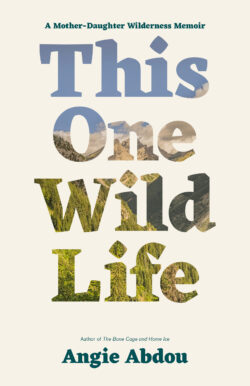 Having recently experienced a large number of contemporary memoirs, I have found myself researching and mulling over the characteristics of the genre. How does a memoir differ from an autobiography? The memoir focuses on a distinct period of the writer’s life, whereas the autobiography is a start to (almost) finish overview; although some see memoir as a subset of autobiography, most current literature emphasizes the distinctly more emotional bent of the memoir. How does the memoir differ from creative non-fiction (a.k.a literary non-fiction)? Both borrow from the techniques of fiction (narrative, a plot with inciting event, rising action, climax, and denouement) to (importantly) reflect upon and relate events that actually happened. Perhaps the two genres are synonymous, or, more likely, memoir is a branch of creative non-fiction? In This One Wild Life, Angie Abdou tackles this thorny question head on, her epigram eschewing the conventional quotation, opting instead for a direct approach: “When I ask myself what distinguishes memoir from other forms of narrative, I always come back to intimacy.”
Having recently experienced a large number of contemporary memoirs, I have found myself researching and mulling over the characteristics of the genre. How does a memoir differ from an autobiography? The memoir focuses on a distinct period of the writer’s life, whereas the autobiography is a start to (almost) finish overview; although some see memoir as a subset of autobiography, most current literature emphasizes the distinctly more emotional bent of the memoir. How does the memoir differ from creative non-fiction (a.k.a literary non-fiction)? Both borrow from the techniques of fiction (narrative, a plot with inciting event, rising action, climax, and denouement) to (importantly) reflect upon and relate events that actually happened. Perhaps the two genres are synonymous, or, more likely, memoir is a branch of creative non-fiction? In This One Wild Life, Angie Abdou tackles this thorny question head on, her epigram eschewing the conventional quotation, opting instead for a direct approach: “When I ask myself what distinguishes memoir from other forms of narrative, I always come back to intimacy.”
If the reader accepts intimacy as the memoir’s core, she/he is likely to be moved by This One Wild Life: Abdou shares her personal vulnerabilities and failings, from a poor sense of direction to occasional absent mothering. She also lets the reader into the lives of her family, reflecting upon the births of her children, her daughter’s extreme shyness, the courtship and proposal of her second husband, Marty, and rough patches in that marriage — to highlight but a few of her personal revelations. We are privy to her joys, frustrations, pain, and anger. More to the point, this memoir passes the Margaret Atwood test for poetry: it does more than express emotion: it evokes emotions. This reader felt many of those emotions — perhaps most jarringly, Abdou’s terror during a climbing incident with fellow writer Jowita Bydlowska that went harrowingly awry.
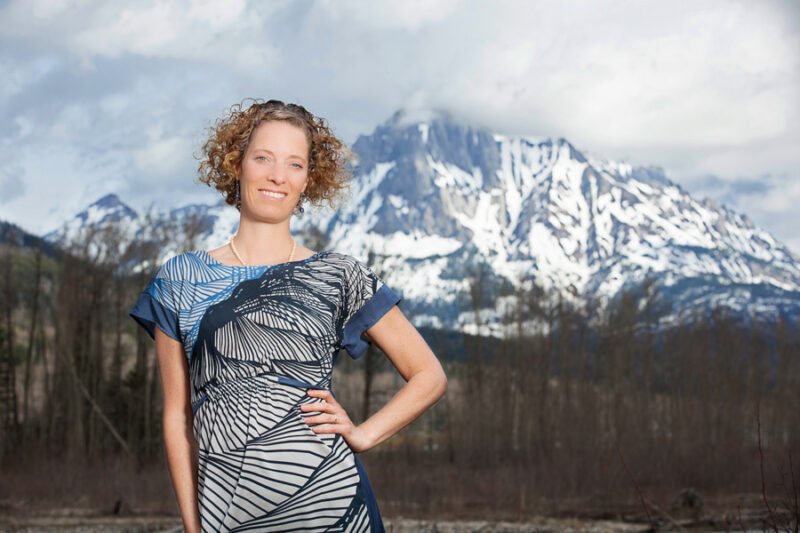
If, as some insist, a memoir historically places greater emphasis on events than on the writer her/himself, the contemporary memoirs I have experienced – Abdou’s included – indicate a new direction. Although firmly set in a place and time, 21st Century memoirs seem to be about writers’ responses to very personal events, rather than spotlighting larger historical events. Perhaps this is where Abdou’s intimacy comes in. I must add that the personal-comes-first approach isn’t necessarily a failing — although navel gazing can ensue. This One Wild Life circumvents self-indulgence by the nature of the issues upon which Abdou reflects and how she reflects on them: child rearing, the environment, social media, and the act of writing (with all of the ethical concerns surrounding each) are of widespread importance, and she draws on research to enlighten herself and the reader.
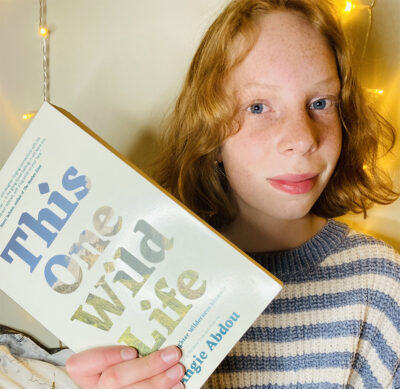
This One Wild Life takes as its subtitle “A Mother-Daughter Wilderness Memoir,” and, although the book begins and ends with Abdou’s red-haired girl, Katie, that subtitle is only part of the picture — albeit likely the biggest part to most readers. Attempting to help Katie overcome shyness, and to atone for previously gravitating toward her son, Ollie, and occasionally and inadvertently being an absent mother to Katie, Abdou suggests the two do a day hike to the top of Mount Fernie. The hike proves so successful that Katie encourages her mother to write a book based on their hiking — to even up the score, as Home Ice centres on Ollie. Abdou envisions a through line: weekly summer climbs for two. However, obstacles –including the desire of the rest of the family to be included, Katie’s ambivalence towards hiking, uncooperative weather, and Katie’s apparent predilection for bolder recreation – present themselves. Despite the detours, the ten-year-old at the memoir’s end seems more confident, yet, admirably, remains somewhat elusive to the reader – and perhaps to the writer, who has accepted that she cannot be everything to her daughter, but is content to be there for her. Parents will likely identify with Abdou’s delicate relationship with her daughter and find her references to various experts on child behaviour edifying.

It would be no stretch to categorize This One Wild Life as a place-based memoir, and, happily for Ormsby Review readers, that place is decidedly British Columbia — largely the Fernie area where the family resides, with an enlightening detour to the Juan de Fuca Trail on Vancouver Island. This work evinces acute awareness that we are in the Anthropocene, with all the human responsibility that entails. From Abdou’s descriptions of the 2017 wildfires and her acknowledgement that their home, in the wildland-urban interface, acts as a fire spreader, to her dismay that her past remote nature haunts are now rife with human intruders, she confronts climate change. Given the family’s bent towards the outdoors — as their primary source of recreation and of Marty’s profession — the impact is profound. Nature is more than a backdrop: the family’s week-long adventure on Vancouver Island brings them closer to each other and themselves, and Abdou finds great solace in the more-than-human world when, for example, a cottonwood tree outside her window is an antidote to the hostility of civilization.
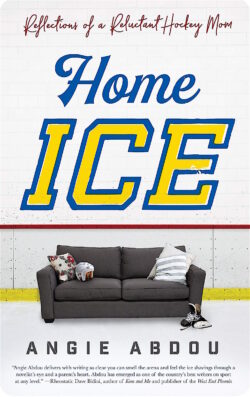
Human hostility penetrates beyond the natural world and right into the soul of the writer. Recovering from the controversy around In Case I Go, a novel, over issues of cultural appropriation, she is hit by animosity over Home Ice, a hockey memoir set in Fernie, that erupts on social media and takes on such proportions that Abdou finds walking down the town’s main street an ordeal. Particularly egregiously, many who attack her haven’t bothered to read the work. Interspersed throughout the book are meditations on the ethics of writing, as well as the slings and arrows writers suffer. As importantly, her research on the enticements and effects of social media is informed, thought provoking and especially relevant during a pandemic, when boundaries between actual and virtual worlds seem precariously porous.
For this reader, mulling over memoir as I am, the frequent reflections on the purposes, processes, pretences, and pitfalls of writing memoir that transcend Abdou’s own perspective are a decided reward of This One Wild Life. For example, through analysis of Karl Ove Knausgaard’s My Struggle, she concludes that narrative is inescapable: “In the name of making meaning, we depend on the lie of narrative” (p. 16). Abdou’s tentativeness, as she acknowledges that she is sometimes at a remove in her experiences with her family — perceiving them as fodder for writing, rather than immersing herself into them for their own sake — explains much about the genre even as it effectuates the intimacy to which she aspires.
Few are my quibbles with This One Wild Life. I do wonder about the sparseness of space devoted to her teaching (she is an associate professor at Athabasca University). As a retired professor who found the vocation all encompassing, I am surprised it can be treated otherwise, even in a summer-set book focused on unrelated topics. Although the interjection of research into her writing – on topics as diverse as child development, the climate crisis, and public shaming, from sources as eclectic as Spinoza and Forbes — occasionally seems strained, expert findings are most often a welcome point of departure for Abdou’s own reflections or actions.
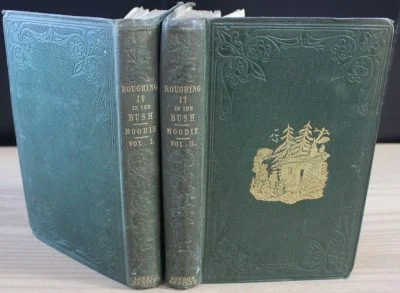
While mulling over memoir, I have decided that, although conventionally categorized as an account or a chronicle (and sometimes autobiography, novel, or part non-fiction and part novel) Susannah Moodie’s Roughing it in the Bush (1852) fits best into the nebulous category. Although Moodie’s classic of Canadiana is not as overtly self-revelatory as the memoir of the 2020s — these are different times, after all — it treats similar subject matter drawn from the author’s (settler) experiences, albeit in very different ways than it is treated today. Fruitful comparison on the development of the Canadian memoir suggests itself.
This One Wild Life will engage those attracted to familial dynamics, environmental adventure, place-based literature, and writing about writing. Readers in search of signposts to balance in the bewildering 21st Century we inhabit might also want to take the journey with Angie Abdou.
*
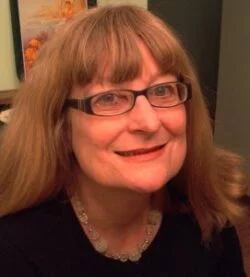
Ginny Ratsoy, Professor Emerita at Thompson Rivers University, takes in the stunning environment around Kamloops through the gentle acts of walking and gardening. Indoors, she writes, reads, cooks, volunteer teaches, and mulls. Editor’s note: Her recent reviews include books by Josephine Boxwell, Caroline Adderson, Melanie Jackson, Estella Kuchta, Madeline Sonik, Mary MacDonald, Lauren Soloy, Nick Tooke, Alix Ohlin, Steven Price, and Sarah Louise Butler.
*
The Ormsby Review. More Books. More Reviews. More Often.
Publisher and Editor: Richard Mackie
The Ormsby Review is a journal service for in-depth coverage of B.C. books and authors. The Advisory Board consists of Jean Barman, Wade Davis, Robin Fisher, Cole Harris, Hugh Johnston, Patricia Roy, David Stouck, Maria Tippett, and Graeme Wynn. Scholarly Patron: SFU Graduate Liberal Studies. Honorary Patron: Yosef Wosk. Provincial Government Patron since September 2018: Creative BC
“Only connect.” – E.M. Forster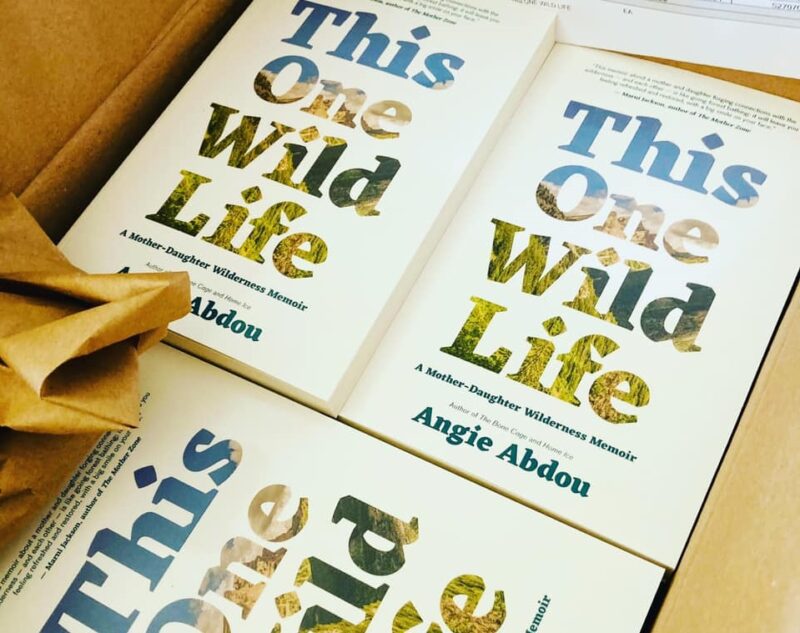
4 comments on “1112 Mulling on memoir & motherhood”